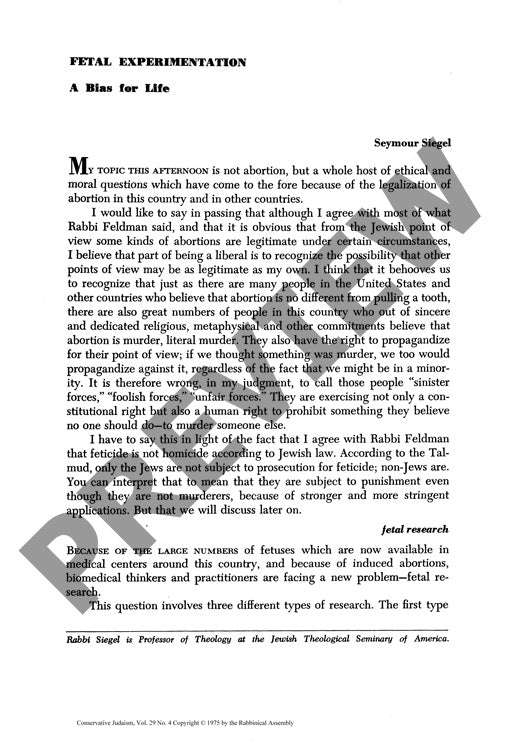Fetal Experimentation a Bias for Life
Couldn't load pickup availability
In the wake of legalized abortion, the ethical boundaries of fetal experimentation remain fiercely contested, demanding clear principles to protect human dignity while advancing medical knowledge. Through the lens of Jewish ethical tradition and contemporary medical guidelines, a "bias for life" framework emerges as a vital safeguard for fetal research subjects. This analysis explores three critical domains of fetal experimentation: in utero procedures before abortion, research during the abortion process, and studies on living fetuses post-removal. Drawing from National Institutes of Health protocols and medical ethics commission recommendations, the investigation establishes that fetuses, while not equivalent to born individuals, possess "potential human life" status warranting specific rights and protections. Research findings advocate restricting experimentation to non-harmful procedures or those explicitly designed to enhance fetal life systems, regardless of viability. The study proposes applying identical criteria for determining fetal death as used for other human subjects and implementing specialized oversight boards for consent procedures. These guidelines preserve fetal dignity by prohibiting artificial life system manipulation solely for experimental purposes, while acknowledging legitimate medical benefits derived from ethical fetal research.

More Information
-
Physical Description
-
Publication Information
Published 1975
ISBN
-
Publication Credits
Seymour Siegel

